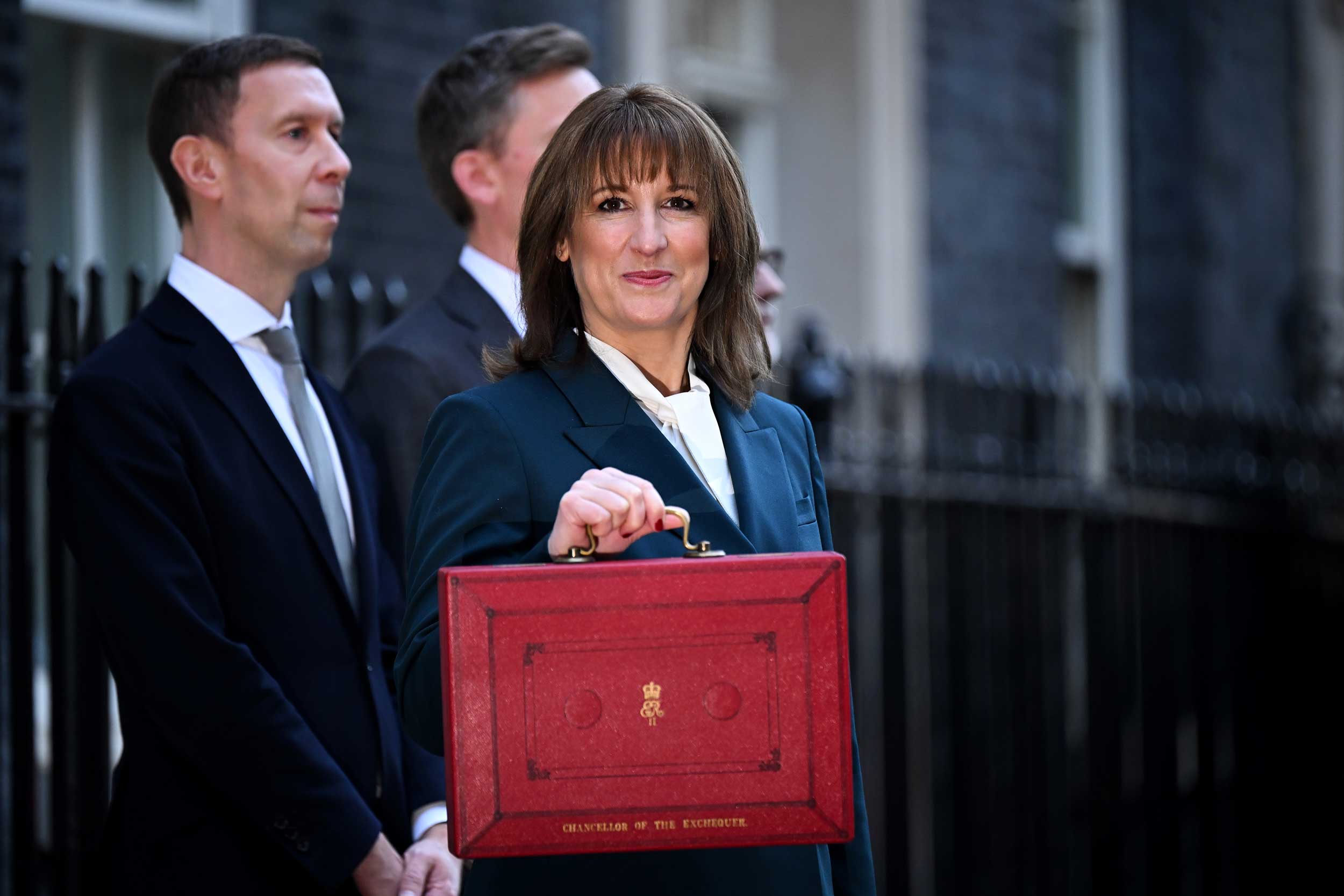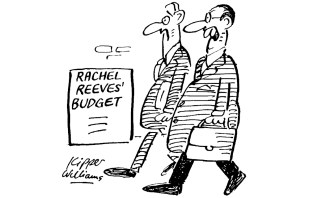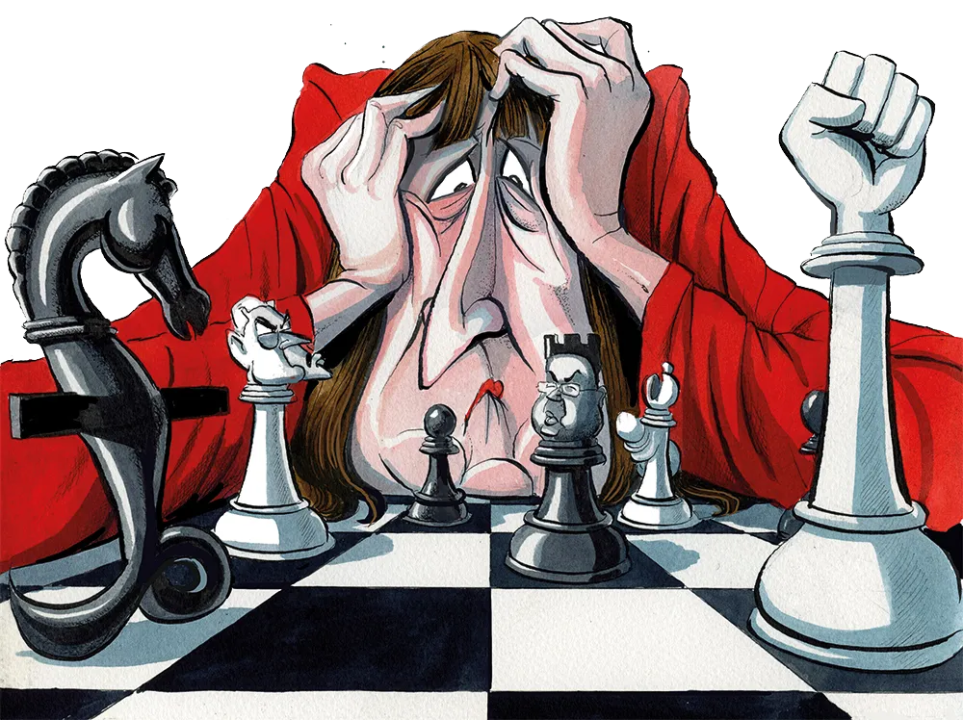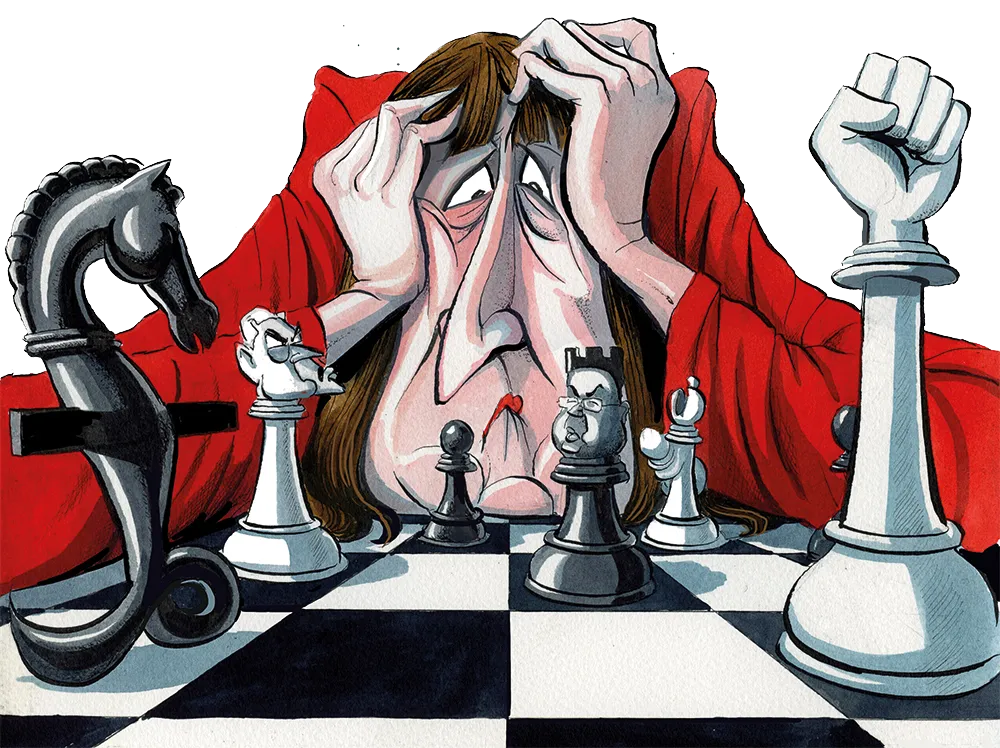
Rachel Reeves is lucky that the name ‘omnishambles Budget’ has already been taken. When the entire document was published long before she got to her feet in the Commons, the only thing that would have made this most chaotic pre-Budget period more shambolic would have been if the Deputy Speaker had banned her from making her statement at all.
Reeves described her second Budget as an expression of ‘Labour values’ but really it is a manifestation of Labour foibles. Much of the commentary beforehand concerned the risk of a ‘doom loop’ of tax rises and economic downgrades, but the Budget is more the culmination of a disastrous year for the government in which political mistakes have led to decisions which trump economic necessity – the outcome of which may be more political misery. That is a doom loop.
In recent days, Britain’s first female Chancellor railed against ‘mansplaining’, condemning the sexism which placed ‘a target on my back’. Yet her decision to raise the ‘headroom’ between her new plans and what is allowed by her fiscal rules from £9.9 billion to £22.9 billion is an admission she got it wrong a year ago, when she imposed £40 billion of tax rises to repair the public finances and promised she would not have to do so again. This time tax rose by £26 billion.
From the start, Reeves wanted to do things her way. In July, the Chancellor gathered key political advisers, including Torsten Henricson-Bell and Spencer Livermore, in her dining room in 11 Downing Street, on Monday and Tuesday evenings. A couple of Treasury officials turned up and, one aide says: ‘They got out the spreadsheets and said, “Let’s look at the numbers”.’
If this was mansplaining, Reeves was having none of it. ‘I don’t want to see any spreadsheets,’ she said. ‘I don’t want any scorecards. That’s not what this Budget is about. We’ve got to have clear priorities.’ She then scribbled them down on a piece of paper: ‘We’ve got to cut the debt. I want to cut waiting lists. We’ve got to cut the cost of living.’ An aide explains: ‘That was the strategy she set out at the beginning and it has never changed.’ Much else has, of course.
At this point, Reeves was prepared to entertain tough messages for Labour MPs. A close ally says: ‘We’ve got to keep public spending under control, we’ve got to keep reducing borrowing and we’ve got to meet our fiscal rule relating to debt. That is important because punters recognise we’ve got a debt problem. The markets know we’ve got a debt problem. But also she felt it was important that the Labour party is continually reminded we have a debt problem and we can’t move off that.’ Privately, Reeves was fond of telling her team that those in denial about debt and the markets needed ‘re-education’ – but ‘not in a Soviet way’, her allies stress.

In the Treasury’s telling, the event that knocked Reeves off course came at the end of July when the Office for Budget Responsibility alerted the Chancellor that they were going to conduct a review of productivity over the last decade, which the OBR has consistently overestimated. Cue downgrades and ‘a big hole’ in the public finances. This was a direct reputational risk to Reeves. ‘If you’re saying growth is your no. 1 priority and then, on the day of the Budget, everyone looks at the numbers and realises growth has been downgraded, you would rightly be howling, “she’s terrible”,’ an aide admits. The Chancellor was incandescent at the OBR’s decision, incredulous it had not done the review a year earlier to give her a clean slate. She told her team: ‘They could have done it at a different time, but I’m the one who has got to pick this up and sort it out.’
Reeves’s team then made the fateful decision to begin the most extensive pre-briefing operation of all time to ‘socialise’ the idea that the productivity problem came from the Tories’ time in government. ‘We couldn’t drop those downgrades on the country and therefore the tax rises without saying anything,’ an aide says. By the end of September, it was clear that the downgrade, which experts predicted to be 0.1 or 0.2 per cent, was going to be 0.3 per cent, a £20 billion cost to Reeves.

The Chancellor gave a speech preparing the public for tax rises and in the first round of proposals she included a 2p rise in income tax, the first to the basic rate since 1975 – a breach of the party’s manifesto pledge not to increase income tax, national insurance or VAT. When the OBR told her stronger wage growth and investment meant there was £10 billion more than expected, the measure was dropped. But all the leaks made the process appear utterly chaotic. ‘I have a pillow I scream into at night,’ a close aide admits.
It is not the case that the removal of the one big tax rise had to be replaced by the ‘smorgasbord’ of smaller measures. Reeves always intended to raid gambling, sugar, pensions, savings, middle-class cycle-to-work schemes and houses worth more than £2 million. ‘“Smorgasbord” is a term used by people who don’t really understand what’s going on,’ a Treasury insider says. ‘More things have actually come out of the Budget package than have gone in since then.’
What has changed since is that Labour MPs went into revolt and threatened Keir Starmer’s position. The appointment of the Prime Minister’s economic adviser Minouche Shafik and his principal private secretary Dan York-Smith, a former Treasury man, has been seen by some as evidence that the PM would play a bigger role in economic decision-making. In fact, Reeves has been forced to embark on a project not of economic revival but of political survival.
Reeves spent her time in opposition trying to convince business leaders that she would not be just another tax-and-spend chancellor, but that is what Labour MPs have forced her to become. The Chancellor who advocated for welfare cuts in the spring is now increasing welfare by £9.3 billion to placate the Labour left. The Chancellor who bemoaned the productivity downgrade is doling out a 4 per cent rise in the minimum wage. The Chancellor who wanted to re-educate her MPs about economics has herself had a brutal lesson from them in politics.









Comments